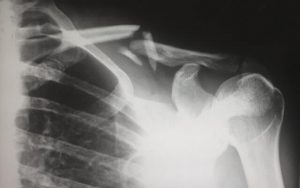Fractured or Broken Bones in Nursing Homes
 As the population of America ages, more people must consider nursing homes and assisted living facilities for their older family members. Older people themselves may want to move to a residence where their basic needs are managed by someone else, leaving them free to spend time with friends and family.
As the population of America ages, more people must consider nursing homes and assisted living facilities for their older family members. Older people themselves may want to move to a residence where their basic needs are managed by someone else, leaving them free to spend time with friends and family.
Unfortunately, we cannot always be sure that the staff in nursing homes will take the same care of our loved ones as we would at home. Nursing home abuse is distressingly frequent, and even homes that try to provide good care are understaffed due to the recent COVID emergency.
If your loved one fractured or broke a bone in a nursing home, you should first report the abuse to law enforcement. Then you should contact Chris Hudson Law Group at (706) 863-6600 for a free legal consultation. Let’s discuss how you can seek compensation on behalf of your family member for the injuries they suffered.
What Is Nursing Home Abuse?
Nursing home abuse is any type of intentional or negligent behavior that results in harm to an individual who resides in a managed care facility. Nursing homes are in a special relationship with their residents and owe their residents a heightened duty of care because they are vulnerable. Any breach of that duty of care can be considered negligence.
Nursing home abuse can include overt abuse, like beating, withholding food or medication, and deliberate mistreatment. It can also mean neglect, such as disregarding calls for assistance, leaving bedsores untreated, or other so-called benign neglect.
Abuse victims can often suffer for long periods due to isolation and their own fear of increasing abuse. If they have no family or friends who visit, overt signs may not be noticed, and they may have no one to report the less visible signs to. They may not report neglect to family members for fear of reprisal or for fear of being labeled “complainers.” It is important for you to keep a close eye on any unusual symptoms and question the nursing home staff closely about your loved one’s care.
Fractures or Broken Bones
 It is a fact of aging that our bones break more easily and heal more slowly. It is not necessarily a sign of abuse for an elderly person to suffer from broken bones. You should pay attention to the circumstances in which your loved one received a broken bone and the location of a broken bone before you become worried about possible abuse.
It is a fact of aging that our bones break more easily and heal more slowly. It is not necessarily a sign of abuse for an elderly person to suffer from broken bones. You should pay attention to the circumstances in which your loved one received a broken bone and the location of a broken bone before you become worried about possible abuse.
- Head or skull fractures. Elderly people often fall. Ask your loved one why they fell, and if their story seems off somehow, question their caretakers or the facility’s medical professional to learn more.
- Arm and wrist fractures. It is common to put your hands out if you fall, so a broken wrist would not be uncommon in this case. Be alert for broken wrists accompanied by bruises around the wrists that could indicate your relative was in restraints. These should only be used under supervision. Fractures of the upper arm are rare because the humerus (upper arm bone) is sturdy. In abuse cases, it can result from a smaller, lighter person being grabbed or shaken by the upper arms.
- Rib fractures. Elderly people can crack ribs while coughing from a bad cold or pneumonia. They can also break them due to unattended falls from beds or chairs.
- Hip fractures. A hip fracture is a serious injury for anyone, especially the elderly. Although a serious fall is required even for an older person to break a hip, an unattended fall should be questioned in any care facility.
In any situation where a relative in a care facility has a broken bone, you should always ask questions about the circumstances surrounding the injury. If there was any delay in seeking treatment, or if your relative or the staff seems reluctant to talk about the injury, these are additional red flags. Don’t be put off by a relative assuring you that “everything is okay.” A broken bone is never okay.
How We Can Help
It is frightening to think that the place you entrusted to care for your family member is mistreating them. You may be tempted to overlook a single incident, but that could leave your loved one susceptible to even more harm. The best thing you can do is contact legal assistance right away.
We handle a wide variety of nursing home abuse cases, including but not limited to:
- dehydration and malnutrition
- untreated infections
- bed sores
- financial abuse
- physical abuse
- medication errors
Monetary compensation may seem like insufficient punishment for the facility that allowed these things to happen, but it is a way of forcing the owners to take responsibility. Although criminal charges might be possible against an individual who actually did the harm, financial sanctions are how our legal system punishes companies who hire and supervise (or fail to supervise) individuals who perform such heinous acts. Our legal team can explain these details to you and help you determine your best course of action.
When bringing a negligence claim or a personal injury suit against a company, you as the plaintiff, on behalf of your relative, have the burden of proving that the nursing home was at fault. This requires obtaining documents about your relative and the employees at the facility that the company may not wish to provide. During the legal process, your attorney can help you acquire these documents through a process called “discovery.”
You will also need to question other employees and residents of the facility to learn the details of the conditions in the home. You may need other medical records from doctors and hospitals. Once the case has begun, someone will need to deal with the opposing attorneys on your behalf. This is not something the layperson should do on their own. You should have knowledgeable legal counsel on your side.
Contact Us for Help Today
If you believe a loved one has been abused or neglected at a nursing home or care facility, you should contact an attorney who can help you with your case against them. Contact Chris Hudson Law Group at (706) 863-6600 and let our legal team review the case. The consultation is free and confidential, and you can schedule one by filling in our contact form. We are here to help you understand what steps to take to help your relative and to get you through his difficult time.
